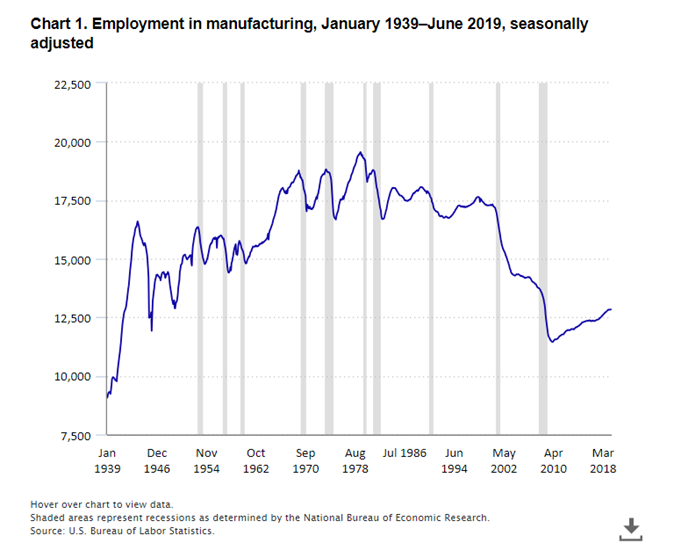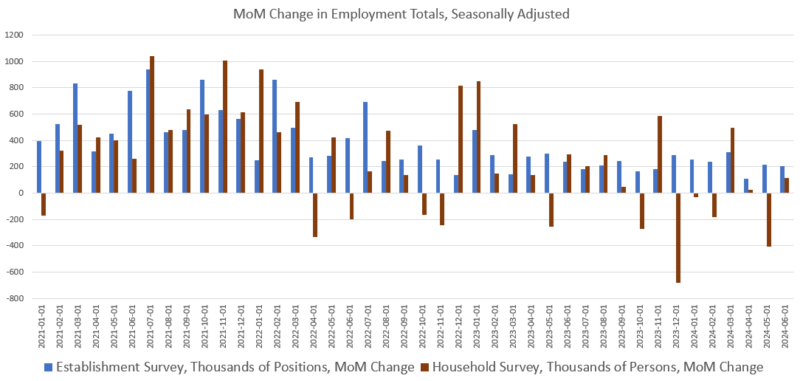Category Archive: 6b.) Mises.org
The party of “democracy” will now choose your candidate for you
On Sunday, July 21, President Biden dropped out of the 2024 presidential campaign via a text-only post on Twitter/X. Less than an hour later, Biden—also via a text-only post on Twitter/X—endorsed vice president Kamala Harris for the presidency. Thus, in just a few minutes, the ruling party in Washington completely erased the primary election process from one of the country’s major parties. That is, the same Democratic party that tells us it is the...
Read More »
Read More »
The degrowth movement is antihuman, and its advocates are fine with that
The assimilation of degrowth ideas into the mainstream portends dire consequences for economic well-being. Degrowth is trumpeted as the solution to averting a climate catastrophe, but it will reverse the economic fortunes of practitioners. Sustained economic growth became the norm recently in history, and surely most people don’t want a return to a preindustrial era with episodic growth and lower living standards. The typical person today would be...
Read More »
Read More »
The cost of a hoax
The cost of a hoaxThe scandal surrounding Canada’s Kamloops Indian Residential School (1890-1969, British Columbia) is an ultracautionary tale about the damage inflicted by self-interested politicians and activists, backed by a media that toes the line. The 2021 scandal sprang from the alleged discovery of 215 graves of indigenous children. They were said to have died under suspicious circumstances at the Catholic-run school and then buried in...
Read More »
Read More »
‘Net zero’ and Keynesian ‘stimulus’ are making us poorer
If you read the latest OECD publication, “Employment Outlook 2024: The Net Zero Transition and the Labour Market,” you would imagine that the world has not gone through the largest monetary and fiscal stimulus in decades.The results are so poor, they are embarrassing. Furthermore, the report illustrates the impoverishment of citizens and subtly suggests that achieving the net zero goal will present an even greater challenge. Translation: You will...
Read More »
Read More »
Does the Fed Push Interest Rates Down? History Says Yes
[unable to retrieve full-text content]Jason Purcell joins Bob to discuss his historical analysis of yield curves (in both UK and US) going back to the 1870s, which shows that central banks do indeed manipulate short-term interest rates.
Read More »
Read More »
What Was Missing at NatCon 2024
National Conservatives are a growing movement on the political right. They are largely united by their belief in the failings of liberalism, in protectionist trade policy, a halt to mass migration, and a more Christianized nation. The attendees of this year’s conference, hosted by the Edmund Burke Foundation, focused on many topics: free trade, their desire to decouple from China, weaponization of government, bureaucracy in government, and even the...
Read More »
Read More »
An Austrian contribution to the praxeology of nature conservation
Without human intervention, there would be no nature conservation, only the natural struggle for species survival through evolution and adaptation. Humans actively protect and shape their surroundings, making nature conservation a practically anthropocentric concept.The conservation of natural elements involves counteracting undesirable changes to those elements and their conditioning environment. Broadly, nature protection includes activities...
Read More »
Read More »
Why Economic Inequality Is a Good Thing
What is the Mises Institute?
The Mises Institute is a non-profit organization that exists to promote teaching and research in the Austrian School of economics, individual freedom, honest history, and international peace, in the tradition of Ludwig von Mises and Murray N. Rothbard. Non-political, non-partisan, and non-PC, we advocate a radical shift in the intellectual climate, away from statism and toward a private property...
Read More »
Read More »
The 1866 civil rights revolution
The phrase “equality of opportunity” is expressed by the Civil Rights Act of 1964 as a nondiscrimination principle. There has been much debate on whether the nondiscrimination principle is a formal right to equality before the law, reflecting the principle that everyone has a right not to be discriminated against, or whether it is a substantive right vested in specified groups (e.g., blacks or women) to give them special legal protection that...
Read More »
Read More »
Full-Time Jobs Fall Yet Again as Total Employment Flattens
According to the most recent report from the federal government’s Bureau of Labor Statistics, the US economy added 206,000 jobs during June while the unemployment rate rose slightly to 4.1 percent. Unlike most months over the past year—which repeatedly described the employment situation as “strong” and “a blowout”—the general media narrative for the June jobs report was far less enthusiastic. According to CNN, for example, the June jobs report...
Read More »
Read More »
A historical lesson in higher-education self-governance
American higher education is facing a crisis of ideological homogeneity. According to a recent survey, 72% of conservative faculty fear losing their jobs due to their speech. This alarming trend can partially be blamed on accreditation agencies. Since 2020, there has been a concerted effort to push diversity, equity, and inclusion policies into college accreditation, threatening the autonomy and values of heterodox institutions. To navigate this...
Read More »
Read More »
Alexander Hamilton’s poisoned legacy
“The Hamilton Scheme: An Epic Tale of Money and Power in the American Founding”by William HogelandNew York: Farrar, Straus and Giroux 2024; x + 575 pp.Most readers of the Mises Wire will be familiar with the account of American history developed in many books by Mises Institute President Thomas J. DiLorenzo. According to him, American history since our founding as a nation has been shaped by two conflicting traditions: one, begun by Alexander...
Read More »
Read More »
Government regulation of competitive firms creates monopolies
Monopolies are believed to undermine individuals’ well-being, including being the cause of large increases in the prices of goods and services. According to Jean Tirole, the 2014 Nobel winner in economics, monopolies undermine the efficient functioning of the market economy by influencing the prices and the quantity of products, making consumers worse off.
Thus, monopolies supposedly cause market conditions to deviate from the ideal state of...
Read More »
Read More »
Does J.D. Vance threaten the regime?
The sitting president is facing an unprecedented inner-party campaign to end his candidacy over his obvious cognitive decline. The presidential front-runner was an inch away from being killed on live television. Yet, in the middle of one of the craziest weeks in modern political history, the most fascinating development is the nomination of Ohio Senator J.D. Vance as Donald Trump’s running mate.The significance of the decision is itself influenced...
Read More »
Read More »
The State Does Not Create Value-Enhancing Jobs
What is the Mises Institute?
The Mises Institute is a non-profit organization that exists to promote teaching and research in the Austrian School of economics, individual freedom, honest history, and international peace, in the tradition of Ludwig von Mises and Murray N. Rothbard. Non-political, non-partisan, and non-PC, we advocate a radical shift in the intellectual climate, away from statism and toward a private property...
Read More »
Read More »
Human Ignorance Is an Unstable Basis for Liberty and Praxeology
What is the Mises Institute?
The Mises Institute is a non-profit organization that exists to promote teaching and research in the Austrian School of economics, individual freedom, honest history, and international peace, in the tradition of Ludwig von Mises and Murray N. Rothbard. Non-political, non-partisan, and non-PC, we advocate a radical shift in the intellectual climate, away from statism and toward a private property...
Read More »
Read More »
From Milk Runs to MAD to Madness
What is the Mises Institute?
The Mises Institute is a non-profit organization that exists to promote teaching and research in the Austrian School of economics, individual freedom, honest history, and international peace, in the tradition of Ludwig von Mises and Murray N. Rothbard. Non-political, non-partisan, and non-PC, we advocate a radical shift in the intellectual climate, away from statism and toward a private property...
Read More »
Read More »
Bureaucracy: The Death Knell of Higher Education
What is the Mises Institute?
The Mises Institute is a non-profit organization that exists to promote teaching and research in the Austrian School of economics, individual freedom, honest history, and international peace, in the tradition of Ludwig von Mises and Murray N. Rothbard. Non-political, non-partisan, and non-PC, we advocate a radical shift in the intellectual climate, away from statism and toward a private property...
Read More »
Read More »
Julian Assange, the Chevron Doctrine, and the case against pessimism
What is the Mises Institute?
The Mises Institute is a non-profit organization that exists to promote teaching and research in the Austrian School of economics, individual freedom, honest history, and international peace, in the tradition of Ludwig von Mises and Murray N. Rothbard. Non-political, non-partisan, and non-PC, we advocate a radical shift in the intellectual climate, away from statism and toward a private property...
Read More »
Read More »
Varying Interpretations of Truth, or Truth as a Social Construct
What is the Mises Institute?
The Mises Institute is a non-profit organization that exists to promote teaching and research in the Austrian School of economics, individual freedom, honest history, and international peace, in the tradition of Ludwig von Mises and Murray N. Rothbard. Non-political, non-partisan, and non-PC, we advocate a radical shift in the intellectual climate, away from statism and toward a private property...
Read More »
Read More »





















